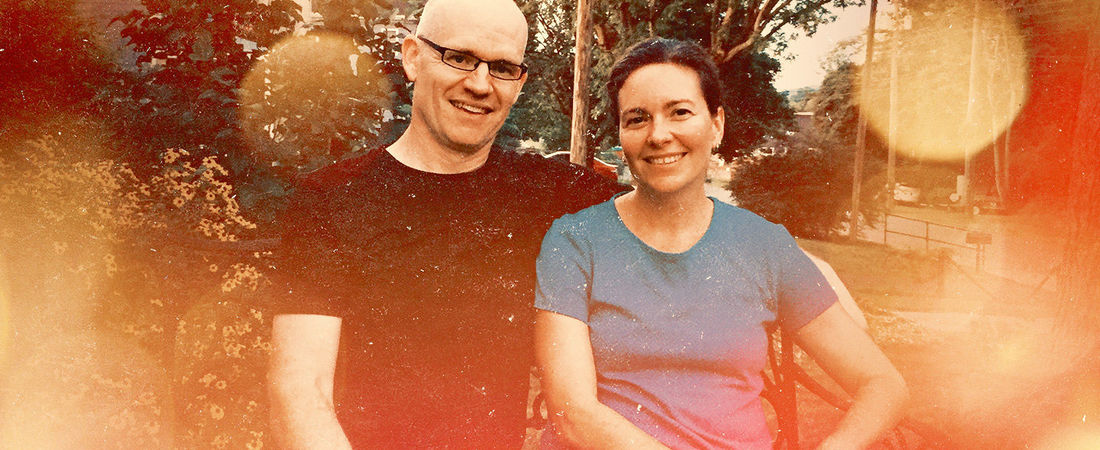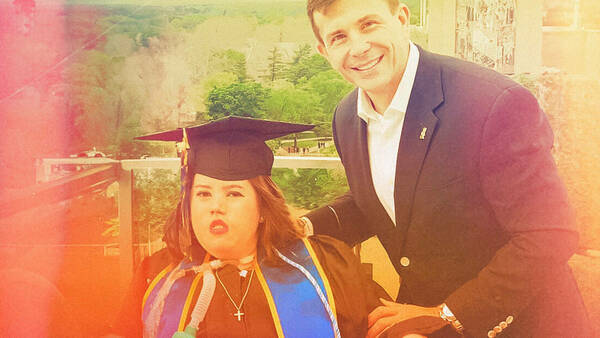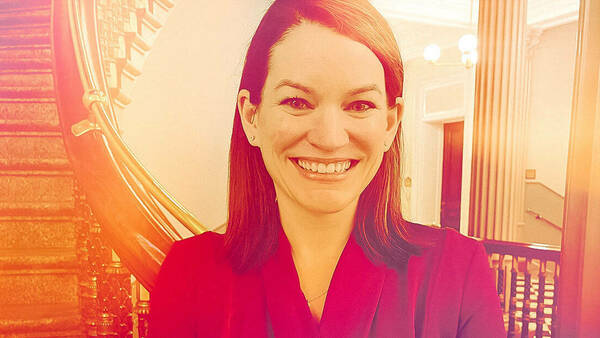Laura and Steve Brown ’95 had always had a heart for service. The couple met while volunteering in Hartford, Connecticut, and later moved their young family to South America, where they served with the Maryknoll Lay Missioners.
So when they moved to Charlottesville in 2009 with their three daughters, they wanted to find a way to integrate their faith and values into their daily work. To do so, they hoped to build support for a Catholic Worker community.
The Catholic Worker Movement was founded by Dorothy Day and Peter Maurin during the Great Depression. Today, more than 200 Catholic Worker communities strive to “live in accordance with the justice and charity of Jesus Christ.”
The Browns expected that starting a Charlottesville community might take years, but they didn’t have long to wait. They soon discovered a life-changing opportunity to serve families seeking affordable housing. Within months of returning, they had scrounged together the money for a down payment on three dilapidated homes in one of the city’s poorer neighborhoods, and they began working with volunteers to rehab the dwellings.
Now, more than a decade later, the Browns, with the help of volunteers and residents, have transformed the property into a bucolic urban homestead that reflects the Catholic Worker principles they hold dear: Seeking God first, loving one’s neighbor by responding to the immediate needs of the poor, and living simply and caring for creation.
The Browns live in one of the renovated homes and over the years have welcomed more than a dozen families into the two adjacent houses of hospitality. Guests arrive seeking a safe, quiet, and affordable place to live that allows them to transition from a challenging situation, save money, and plan for the future.
“The range of experiences of families who come here to stay at Casa Alma is pretty broad,” Steve says. “We've had three families that have been in the pipeline to receive Habitat housing. So they’ve come in here with the knowledge that at the end of their time here they were going to be moving into their own home. For other families, it could be that they have been living in the house of somebody that they know. It might be a family of four, a mom and three kids, sleeping on a sofa. They have no real control over the front door of a place like that. People are coming in and out, and they're dependent on the host for everything, and that’s a very unstable situation.”
Casa Alma’s houses of hospitality provide these families a place to catch their breath. Guests choose how much they can afford to pay for rent, and no one has ever paid more than $100 per month. They now have money to spend on medical and dental needs, and they become healthier. They start to save for the future. And they live in community, working alongside the Browns and volunteers to tend and harvest a variety of seasonal crops that grow well in Charlottesville’s climate — everything from strawberries, bush cherries, and currants to kale and sweet potatoes. Over time, they transition into their next home. But many return to visit and to volunteer at the place that provided their family with a much-needed respite.
Casa Alma has also provided the Browns with opportunities to connect with others who are seeking to build a better world — everyone from fellow urban farmers and affordable housing advocates to people looking for opportunities to explore social justice through conversation, prayer, and reflection. After the well-publicized white supremacist rallies in Charlottesville in 2017, the Browns organized multiple opportunities for local residents to draw on their faith and confront racism together.
Together, the Browns continue to appreciate the opportunities they have found to live in community and use their talents to help others.
“I think it's a real privilege to accompany the guests who stay in our hospitality houses,” Laura says. “We really get to hear the details of their lives before they came to Casa Alma and learn a lot about the struggles that they face, the ways in which they come up against systematic injustice, and what that looks like in their life, and in their kids' lives. They're giving us the opportunity to accompany them, and leverage some of the resources that we have, whether that's our education, contacts, or just being able to steward this place, and make it safe and welcoming.
“That really feels like a privilege, and I really enjoy it, because I get to know people and am invited into their lives. I wouldn't have the opportunity to know people at the same depth if we weren't living so closely together, and sharing parts of our lives together.”



